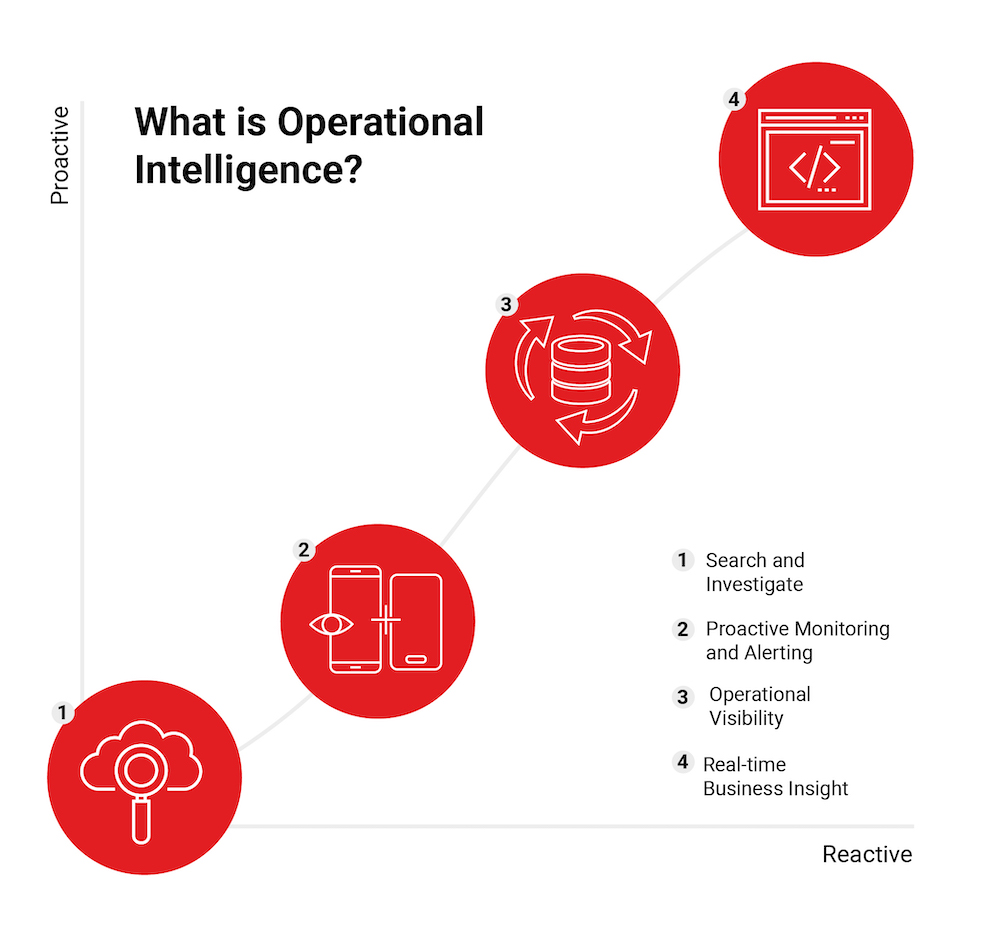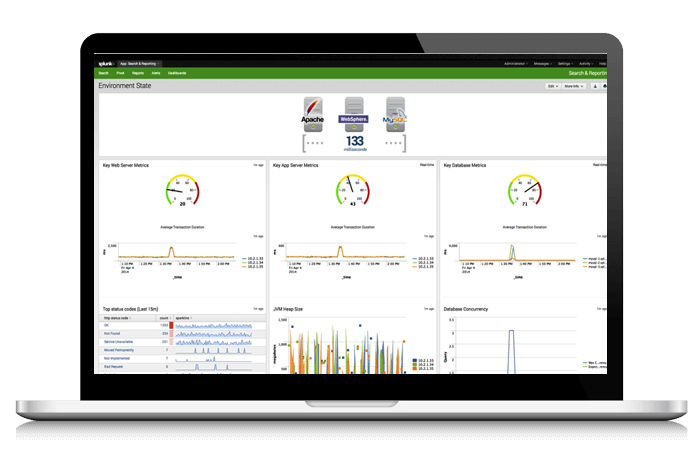Operational Intelligence
Identify service degradation immediately through proactive analysis of the performance of your IT infrastructure

What is operational intelligence?
The term operational intelligence (OI) refers to analytical methods for deriving recommendations for action and decisions from real-time data. OI methods aim to centrally collect, process and evaluate live data from various business processes. In principle, all business processes from machines in production to sales data from branches to climatic data from the production halls can be considered as data sources.

Operational intelligence approaches allow decision makers to use real-time data sets for strategic decision making and to derive well-founded recommendations for action. In addition, data sets can be used to identify anomalies, trends and patterns in data – allowing, for example, risks to be identified at an early stage and mitigated by taking appropriate action.
Working with operational intelligence and which tool suits my company?
In practice, operational intelligence decision making is often based on a combination of different data sources. For example, companies can enrich unstructured machine data from IT with structured data from the company’s own ERP or CRM system and gain new insights from it.
Modern operational intelligence approaches offer companies from almost all industries great potential for optimising strategic decisions in real time. Almost every business today captures data in some form – but many decision makers still don’t know the value of that data.
With operational intelligence software solutions, you can consolidate data from a wide variety of sources into one central location and visually present it on a user-friendly dashboard. This enables decision-makers without in-depth IT knowledge to identify and evaluate patterns and trends.
Typical industries that benefit from the use of operational intelligence include:
- Retail
- Manufacturing industry
- Automotive industry
- Food and beverage industry
- Financial services and insurance industry
- Catering
- Energy technology
- Construction industry
- Chemical and pharmaceutical industry
When selecting suitable operational intelligence software, it is important to take into account the individual data technology requirements in the company. As a long-standing IT specialist and consultant, we support you in evaluating your individual potential for operational intelligence methods and in finding suitable software that meets your requirements. In addition, we also support you in the implementation and commissioning of the software as well as in the processing and evaluation of the data.

Operational intelligence vs. business intelligence
The terms operational intelligence (OI) and business intelligence (BI) refer respectively to methods for data analysis. The main difference between the two approaches is that OI methods take real-time data into account, while BI methods are based exclusively on historical data. Operational intelligence can thus be considered the next generation of business intelligence.
From the company’s point of view, operational intelligence offers a decisive advantage over business intelligence: In this way, risks and threats can be identified immediately through the real-time evaluation of data and, what is more, they can be responded to in good time. Business intelligence data, on the other hand, is only updated at regular intervals and may therefore already be out of date at the time of analysis. However, it must be remembered that historical data is also of great value to companies: This enables decision-makers to identify long-term trends and draw conclusions about future developments from the past. In practice, operational intelligence and business intelligence therefore often go hand in hand.
With Splunk Enterprise’s operational intelligence software, you have the ability to fully leverage the potential of your enterprise data and use it to drive strategic and operational decision making. The software has powerful search, analysis and visualisation functions and provides more transparency in your business processes.

Splunk Enterprise
Splunk Enterprise enables monitoring and analysis of everything from clickstream data and customer transactions to security events and network activity, pulling valuable operational intelligence from your machine data. Thanks to the full range of powerful searches, visualisations and predefined content for use cases, users can quickly gain and share insights.
Highlights of Splunk Enterprise
- Search and analyse data from any source
- Real-time monitoring of systems and infrastructure
- Recognition of trends and patterns of activity and behaviour
- Optimisation of business processes and results
- Download the Splunk overview app to get to know the new features
Contact us and make an appointment for a personal discussion!
Recommended by SMEs and companies with millions of requests

































